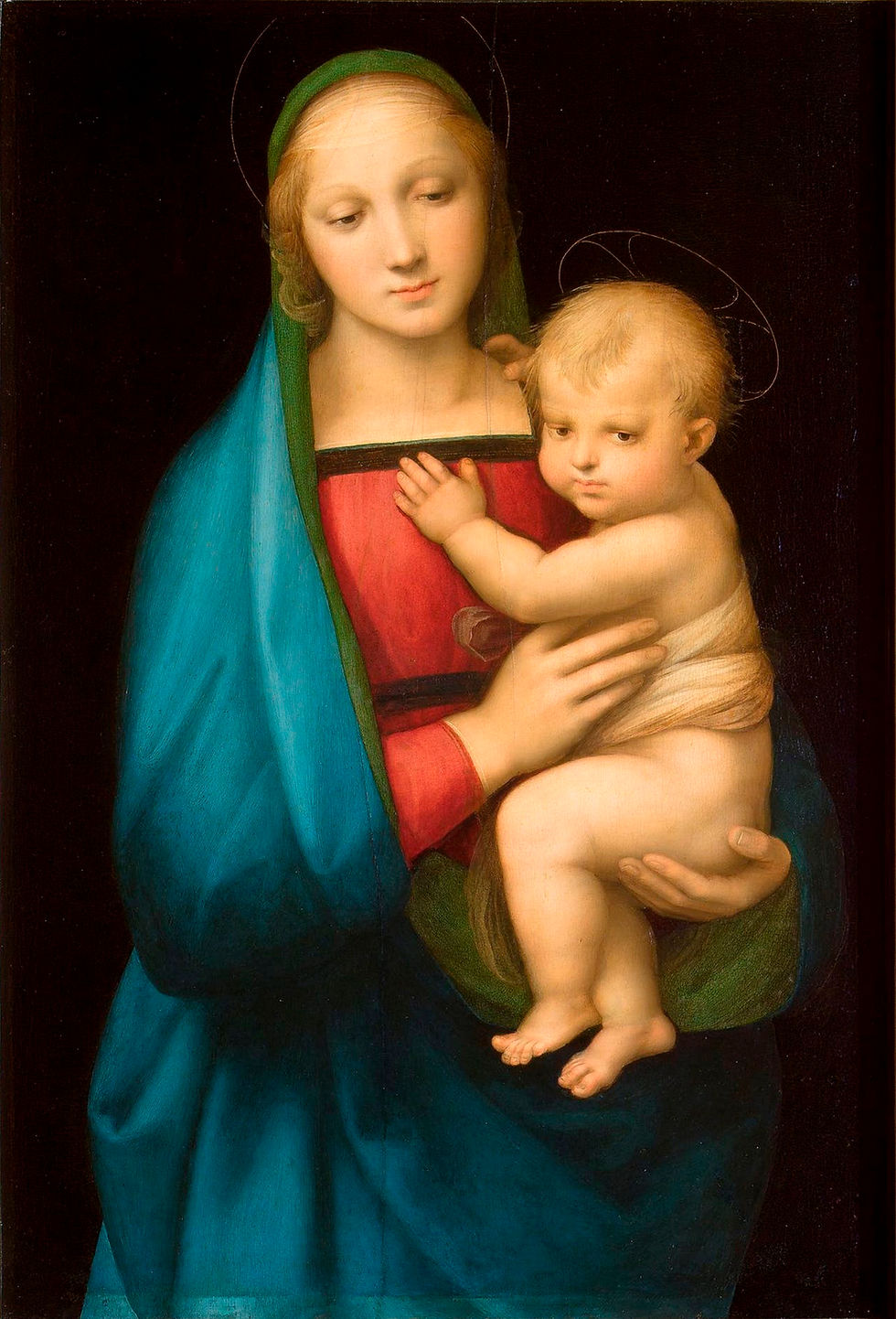Surprised by Art: Undying Love
- Kirk Barbera

- Jan 15, 2024
- 3 min read
Learn more about Luc Travers and his work at Touchingtheart.com
In our latest podcast episode, we venture into the complexities and mysteries surrounding the concept of eternal love. Our guest, Luke Travers from touchingtheart.com, guides us through a nuanced exploration of how this theme is represented in art, literature, and our personal experiences. The notion of everlasting love has intrigued humanity for centuries, finding its way into tragic and passionate stories alike.
Throughout history, art has served as a medium to express the intricacies of human emotions, with love being a central theme. We discuss the possibility of romantic love being eternal by examining the internal struggles and societal pressures that challenge this idea. The character Michael Corleone in "Godfather Part Three" becomes a focal point in our discussion, symbolizing the reflective journey of a man who questions the permanence of his affections.
The episode further delves into a poignant portrait that tells a story without words. We interpret the image of a tearful yet composed woman, potentially rooted in Greek mythology, and connect it to the odysseys of love and parting found in Homer's works. This visual analysis becomes a segue into a broader conversation about how past relationships shape our creative expression and our search for a love that resonates on multiple levels.
We reflect on the importance of aligning spiritual, intellectual, and physical connections to make a relationship truly exceptional. The story of Tristan and Isolde serves as a classical example of the emotional intensity and complexities of love within and against societal norms. This leads us to consider the impact of our first loves and the decisions we make in pursuit of a romantic bond.
As we draw the episode to a close, we immerse ourselves in the poetic depiction of love that yearns for both eternal and sensual fulfillment. We analyze the verses of poets who have likened undying love to the constancy of a star while recognizing the enduring desire for a love that transcends death, as exemplified in Longfellow's "The Cross of Snow." This poetic journey underscores the eternal pursuit of a love that remains steadfast through life's transformations.
The episode concludes with an invitation to listeners to join my upcoming art course, Touching the Art 201, and the Literary Canon Club at Troubadourmag.com. These platforms offer opportunities for deepening one's appreciation for art and literature, enriching the understanding of love's portrayal across various mediums.
In conclusion, the podcast invites listeners to contemplate the depth and longevity of their own romantic relationships. By celebrating the art of love and the love of art, we offer a space to reflect on the timeless nature of the emotions that bind us together and the expressions that immortalize them in culture.
Paintings Discussed:

Calypso by George Hitchcock

Penelope & The Suitors by John William Waterhouse
Poetry Discussed
“Bright star, would I were stedfast as thou art”
BY JOHN KEATS
Bright star, would I were stedfast as thou art—
Not in lone splendour hung aloft the night
And watching, with eternal lids apart,
Like nature's patient, sleepless Eremite,
The moving waters at their priestlike task
Of pure ablution round earth's human shores,
Or gazing on the new soft-fallen mask
Of snow upon the mountains and the moors—
No—yet still stedfast, still unchangeable,
Pillow'd upon my fair love's ripening breast,
To feel for ever its soft fall and swell,
Awake for ever in a sweet unrest,
Still, still to hear her tender-taken breath,
And so live ever—or else swoon to death.
The Cross of Snow
BY HENRY WADSWORTH LONGFELLOW
In the long, sleepless watches of the night,
A gentle face — the face of one long dead —
Looks at me from the wall, where round its head
The night-lamp casts a halo of pale light.
Here in this room she died; and soul more white
Never through martyrdom of fire was led
To its repose; nor can in books be read
The legend of a life more benedight.
There is a mountain in the distant West
That, sun-defying, in its deep ravines
Displays a cross of snow upon its side.
Such is the cross I wear upon my breast
These eighteen years, through all the changing scenes
And seasons, changeless since the day she died.





Comments